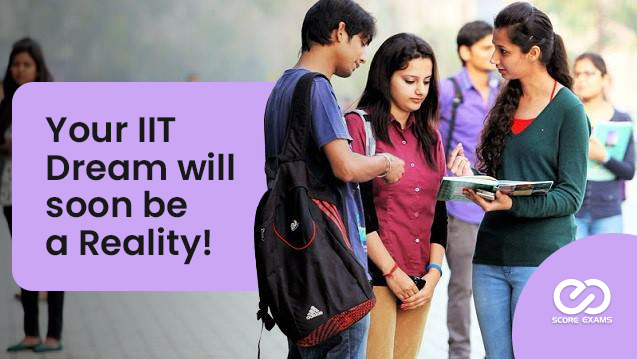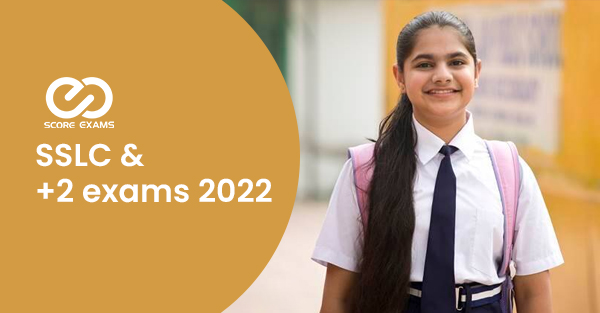
Preparing Simulatenously for Board and Competitive Exams
An average Indian student knows what it?s like to prepare for a board exam and be
done with it, only to be struck by the next exams ? entrance exams which
determine his fate in his higher education. The Board exams happen in February-
March and most entrance exams start from April, May and so on. To be left with
such little time, for an exam that decides your future in higher education can set
off paranoia and fear. Scoring well for both exams is a daunting task indeed. Your
strategy while preparing for both tests would definitely have to be different.
You must first realise that an entrance exam will be written by many students, in
order for the institutions conducting them to filter the best from the whole lot.
Board exam questions are usually prepared considering the average school
student. But entrance exams are a different game. They will be prepared to keep
in mind that they need to filter out the average and only admit the best. Most
entrance exams like JEE, NEET, AIIMS, BITSAT are extremely competitive and
you need to be a cut above the rest of the applicants to qualify or pass these tests.
So how should a student prepare for his/her boards and an exam like JEE, for
instance?
First things first, no panicking. When you panic, you tend to spend more time
worrying than studying. This is something that should be kept in mind before any
exam, for that matter. We must also be mentally prepared to handle stress. Include
an activity that de-stresses you, like outdoor games or yoga and meditation. The
latter helps greatly with concentration and might give an added boost to your
preparation.
The following tips and suggestions should help you to prepare for both exams
simultaneously.
1. Our board exams are definitely important and they set the foundation of our
confidence level for the various competitive exams that we will be writing in the
future. However, the entrance exams are more crucial since they technically
decide your future. For an exam like JEE, the syllabus is quite similar to that of
your 12 th boards. That is a blessing of sorts. Soon after your boards, you have to
jump right back into your JEE prep, which should include plenty of revision. Even
for normal exams, revision is the only way to make the most of your memory
retention.
But for people choosing other exams, keep in mind that you must have your
options figured out way before the boards start. We?re talking almost a year
before. Only if you have an idea of what you want to study for college can you be
fully prepared for the entrance exams? Once you have decided what you will be
studying, start going through the previous years? question papers.
2. Have a proper routine. Sleep time shouldn?t be later than 11:30 pm. Wake up
around 8 and start your day. If you are having trouble sleeping, please desist from
using medication. You can do some deep breathing exercises or maybe some light
reading to unwind or inhale an essential oil like lavender which is proven to help
with sleep troubles. Maintaining a healthy diet is crucial to your preparation. Think
of your body as something that should only receive good things. What you ingest
determines so many things so prioritise a healthy diet rather than binging on junk
foods. Many students ignore their health and sometimes end up falling sick on the
day of their exam, ruining their chances. That is an event best avoided.
3. Divide your study hours to focus on both the boards and entrance exams.
Identify your strong and weak points early on. Focus on the weaknesses. Revise
the important concepts and keep reading them or practising them till it feels like
you have mastered them.
4. Coaching classes
Exams like JEE, NEET, AIIMS, JIPMER, BITSAT would definitely require
coaching sessions. These exams test the analytical approach, logical thinking and
aptitude ability of the candidate. These sessions can either be online or you can
physically attend classes nearby. For these exams, in particular, such classes can
optimize your preparation. Many a time while using books to prepare for a topic,
we may encounter some mistakes or typos that confuse us. The mentors present at
the coaching institute are capable of clearing these doubts.
One thing common to most entrance exams is multiple choice questions. For JEEs
and similar exams, you require constant practice to be able to solve all the
questions within the given time frame. Use mock tests and previous years question
papers to get familiar with the pattern of the question paper and improve your
speed and accuracy.
While its normal for most parents to enforce a strict cut-down on social media,
online tools can sometimes help a student understand things better. Especially for
those students writing exams for programmes other than engineering and
medicine, social media can be very helpful in boosting their preparation. Youtube
videos and NPTEL courses, in particular, can help many humanities and commerce
college aspirants.
In a nutshell, no panicking, have a routine ? stick to it diligently, take good care of
yourself, practice plenty and go for coaching classes. And as Effie Trinket from
the Hunger Games would say, ?May the odds be ever in your favour?
Apps College Student Must Go through
Previous PostNEET Exam anounced
Next Post





